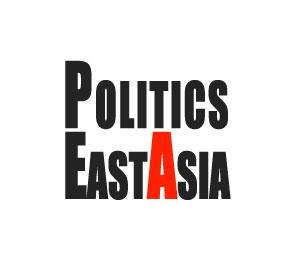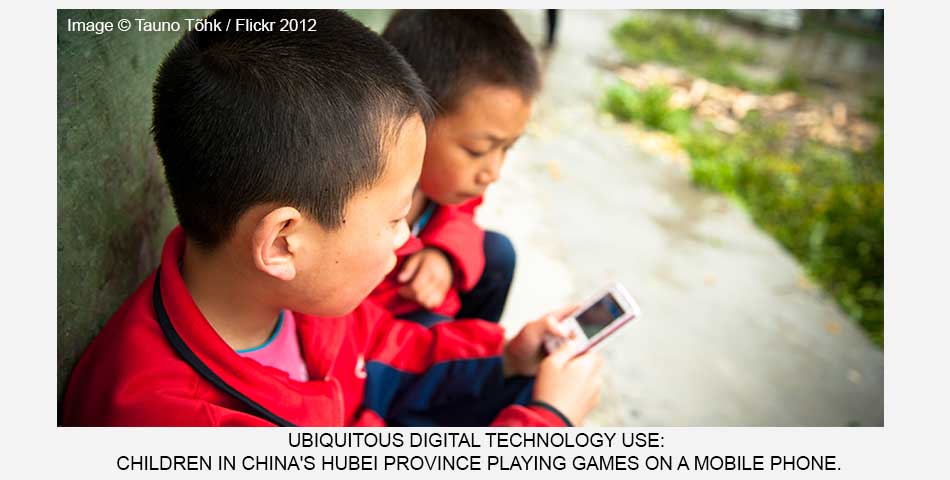International Conference Call for Papers: Revisiting the Emancipatory Potential of Digital Media in Asia
Asiascape Digital Asia (DIAS) Launch Event
24-25 January 2014 at Leiden University
The academic journal Asiascape – Digital Asia (DIAS), in collaboration with the Goto-Jones VICI project “Beyond Utopia” funded by the Netherlands Organization for Scientific Research (NWO), welcomes scholars from the area studies, communication sciences, cultural studies, humanities, and social sciences, as well as from multi-disciplinary backgrounds, to this international conference on digital media in Asia.
Abstract
Over the past decade, new forms of information and communication technologies have shaped the way people relate to each other, engage in social activities, conduct commerce, and participate in political processes. The inception of so-called Web 2.0 services such as Facebook in 2004, Youtube in 2005, and Twitter in 2006, has introduced a degree of interactivity to communication processes that surpasses that of previous technologies.
Numerous companies from around the world have since imitated the success of these large networking, video-sharing, and micro-blogging sites. The popularity of such interactive digital media has meanwhile generated much debate regarding the emancipatory potential of these tools – a debate that has largely focuses on American and European experiences, and that in its extreme revolves on the one hand around the arguments of liberal scholars like Clay Shirky or Yochai Benkler, who emphasize the potential of such technologies to empower citizens, and on the other hand around the concerns of cultural critics like Evgeny Morozov or Sherry Turkle, who see these innovations as exploitative, domineering, and potentially damaging.
This international conference moves such debates to Asia, and confronts them with the realities of digital media usage in this vibrant region. How does citizen journalism work in countries like China, Malaysia, or Singapore, where citizens have constructed information networks through blogs and tweets that run parallel to official mainstream media, and where states and ruling parties attempt to control such processes through sophisticated information and communication technologies? What are we to make of citizen consultation in light of the Indonesian case, where politicians use social media to shore up support from online communities by prompting them to take over social responsibilities that were originally part of the state’s social service portfolio? How should we assess the contentious nature of digital media in light of Indian examples, where such media help coordinate anti-corruption movements while at the same time entrenching the middle-class interests that inform these movements? Meanwhile, in Japan how do we gauge the political and social impact of alternative forms of journalism and novel forms of protest facilitated by digital media in the wake of the March 2011 triple disaster, as well as the subsequent use of social media as a platform for revisionist politicians? In South Korea, how do youth groups come together on international social networking sites and on local alternatives like Cyworld or me2day as they develop alternatives to mainstream Korean culture, and what role do smartphones and other mobile technologies play in these processes?
By analysing such cases, this conference critically asks how we can overcome dichotomies such as emancipation vs. domination in the study of digital media, and how we can instead explain the transformative role of such media in all its complexity.
Conference Themes
The conference will address the questions regarding the emancipatory potential of digital media in Asia by focusing in particular on issues such as:
- Citizen journalism in the forms of blogs and micro-blogs,
- Social and political participation through global as well as local social networking services,
- Coordination of cultural and political activities through new ICT, such as smartphones, tablet computers, portable gaming devices.
- Knowledge construction, information sharing, and social bookmarking through wikis and media sharing,
- Social and political critique in digital networks,
- Social and political control through Web 2.0 architecture.
DIAS particularly encourages contributions that approach these issues from a theoretically informed and empirically grounded perspective, and that use digital methodologies to study these digital issues.
Deadlines for Abstracts and Papers
Scholars working in the above-mentioned fields are invited to submit abstracts of proposed papers along with a short biographical note by 1 October 2013. The organizers will inform applicants of their decision by mid-October. Conference papers should be submitted by 6 January 2014, and should not exceed 8000 words, including notes and references.
Publication
Papers that distinguish themselves through their academic rigor may later also be submitted for peer-review and publication in Asiascape: Digital Asia. For submissions, please visit the DIAS editorial management system.
Conference Programme
Please view the following conference programme for presentation titles, participants, and the conference schedule.
Contact
For questions and submissions, please contact the conference organizer Dr. Florian Schneider or the conference manager Mrs. Esther Truijen. For more information on Chris Goto-Jones’ VICI project “Beyond Utopia”, see the project description on Asiascape.org.
Registration and Travel
While DIAS does not subsidize travel and accommodation, conference registration fees will be waived for paper presenters.
For registration and up to date conference information, please visit the DIAS conference page. Feel free to also download the pdf version of this call for papers for your files.
Share This Post, Choose Your Platform!
3 Comments
Comments are closed.



[…] consultant Jeff Jarvis. Such criticism omits how digital humanities research critically examines the myths of digital communication in different contexts and questions the agendas of the major players in the digital media […]
[…] subject to organizational changes. For more information on the conference, see also the original call for papers and the conference information available on […]
My partner and I stumbled over here from a different web address and thought
I might as well check things out. I like what I see so now i’m following you.
Look forward to going over your web page yet again.